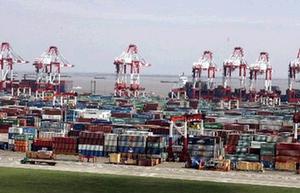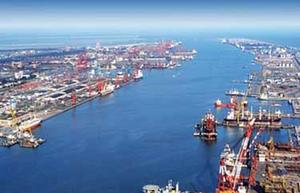Qingdao Port: Shipments unaffected by investigation
By Gao Changxin in Shanghai (China Daily) Updated: 2014-06-05 06:51The China Banking Regulatory Commission started an investigation into irregularities in copper-financing, and ordered a couple of lenders to stop issuing loans using copper as collateral. Earlier this year, the commission started a similar campaign on iron ore.
Up to $160 billion of outstanding loans in China are borrowed using commodities as collateral, about 31 percent of the country's short-term foreign exchange loans, according to Goldman Sachs.
According to a report published on Monday by the Metal Bulletin, the total value of the metals involved in the investigation could be in excess of $1 billion.
Due to the scale involved, any default is likely to threaten the stability of the country's banking system, experts said. Also, if wrongdoings are confirmed, banks might become even more reluctant to finance commodity companies, especially metal importers. It will also dampen international commodity prices, many of which are yet to recover from the lows of the global financial crisis.
Offering evidence that it didn't halt shipments, the port of Qingdao told the National Business News that 184 ships, including four big ore carriers, sailed out of the port in the three days between May 31 and June 2. The port handled a total of 125,000 20-foot equivalent units during the three days.
Last month, Qingdao Port International Co raised $377 million in a Hong Kong initial public offering, selling 776.38 million shares priced at HK$3.76 (49 US cents) each.
The port of Qingdao is China's third-largest foreign trade port and the world's seventh-largest port, trading with 700 ports in more than 180 countries, according to its website.
|
 |
 |
| Robust growth at Shanghai port | Tianjin Port plans to upgrade its overall environment |
- Developer from China making its mark Down Under
- Xunlei's team-up with Xiaomi a shrewd strategy
- Tianhe tests investor reaction in HK
- New entrants face wrath of media old guard
- Do stationery firms have 'write stuff' for IPOs?
- China approves marine development pilot in Qingdao
- BOC to foster ties between Chinese, Italian SMEs
- No last laugh for Wahaha founder as mall struggles

















